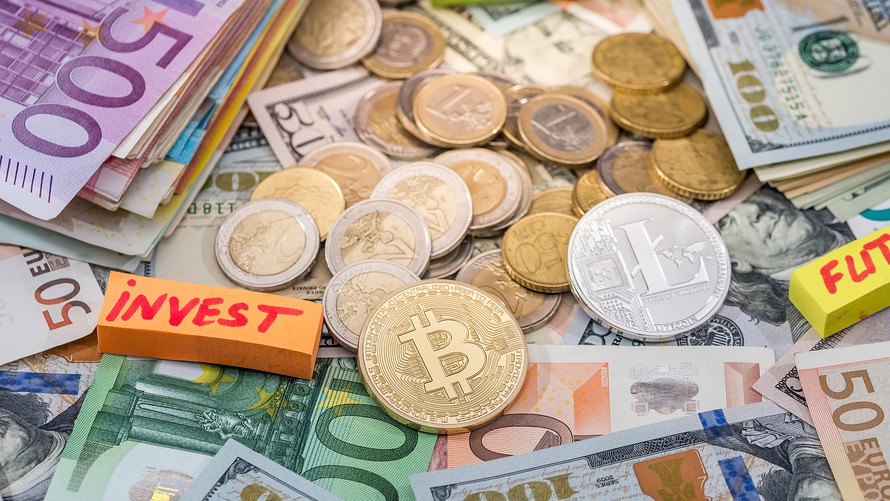MONEY là đề tài thân thuộc trong cuộc sống hằng ngày và cũng là chủ đề thường xuyên xuất hiện trong các đề thi IELTS Speaking. Trong bài này, cùng LangGo tham khảo các mẫu câu hỏi và mẫu trả lời cho chủ đề này ở cả 3 phần thi nhé!

A. IELTS Speaking Part 1: MONEY
1. Do you like shopping?
No, I don’t. I am not a hoarder and only prefer to buy high-quality things that I know I definitely need. And this, of course, happens not that often.
2. Have you bought anything interesting recently?
Yes, I did. I desperately needed new sneakers and found a beaufitul pair of white ones.
3. How important is money to you?
I consider money just a tool to achieve goals. Without it, it would be quite hard to get anything significant in life when it comes to tangible things that can be bought.
4. Do you think you will have lots of money in future?
Yes, definitely. I am working hard right now to get a nice well-paid job. In the future, I will for sure be able to maintain a good lifestyle.
5. Would you like to become rich some day?
Of course, I do. But this is not an end goal for me. I need money to serve the humanity better, because I want to build a chain of waste recycling plants in the future.
6. Do you think it is ok to lend money to friends or family members?
I do not support those who rely on borrowing. However, sometimes it is okay to lend money as long as it serves a good cause.
7. Are you good at saving money?
Yes, I consider myself very conscious when it comes to my spending habits.
8. Do you invest your spare money?
Unfortunately, not yet, however, I have been thinking about investing it for quite some time. The thing is – I can’t find enough time to properly break this down for myself.
9. Do you think financial literacy is at the high level aross generations?
In my opinion, young people generally think less about money management than adults. I expect this to change because of better education at schools and universities.
B. IELTS Speaking Part 2: MONEY
Describe something you want to buy but can’t afford. (Miêu tả thứ mà bạn muốn mua nhưng không đủ khả năng)
You should say:
- What you would like to buy
- How much it costs
- Why you can’t afford it
- and explain if there is any other way you could acquire it.
I would like to buy myself a car. This will be my first vehicle, because I have just got my driver’s licence. I like travelling with comfort to work and around the city, but the heavy traffic during rush hours makes public transportation really inconvenient for me. However, I am very conscious about the environment and wouldn’t like to spend money on a conventional automobile that will only contaminate the air we breath. Therefore, the perfect car for me would be an electric one – ideally, a Tesla.
Teslas cost substancially more than usual petrol cars. Their price fluctuates around 80,000 – 100,000 USD. What I especially love about it is that it’s possible to design my own one – some parts of it can be customized.
Unfortunately, I can’t afford this car right now – I have just graduated and entered the job market with not the highest ever salary. Also, I haven’t taken up a single loan, and I am of a strong belief that credit must finance only investments that generate future returns. And such a consumeristic purchase as a car definitely won’t earn me any money. In fact, I will only spend even more on planned maintenance. Thankfully, Tesla is not a vehicle that needs petrol, so I will majorly save on gasoline. Thus, I will wait for a couple of years, until my pay improves. I will also have a better range of car models to choose from.
C. IELTS Speaking Part 3: MONEY
1. How much money is enough?
The question of a sufficient amount of money is absolutely subjective – everyone has their own pay-rate expectations (idea). This highly depends on the lifestyle one leads – on the quality of life one is accustomed to. In my opinion, one can surely say they have enough money when they are able to afford spontaneous purchases thoughout the month without worrying about their next month financial stability (explain). There are many modern online banking apps that allow to track monthly spendings and plan future budgets – they are a great helping hand indeed (example).
2. What problems does money cause in your society?
Money is the tool that solves many problems – from very small daily ones to huge infrastructural issues (idea). However, there are certain people whose individuality and character force them to make poor decisions when given too much money or power (explain). One of the most evident examples is politicians who are frequently corrupted, which makes them incompetent and inefficient public servants. Globalisation only exacerbates the gap between haves and have-nots. Many people lack money to sustain day-to-day living, while the rich become richer every day(example).
3. Do young people nowadays believe in saving money? What conflicts can arise between a person’s family and a person’s friends?
The willingness and ability to save greatly depends on a person’s character (idea). Since many young people are still not mature enough and prone to sudden mood swings, it is easier for them to fall prey to compelling ads, ending up with a bag of spontaneous purchases. In addition, many companies offer easy payment terms, so youngsters get tempted to spend more on things they do not really need (explain). A great example would be the rapid advancement in technologies that give access to instant credit from the biggest and most reliable banks (example).
Nguồn tham khảo: thetesttaker








